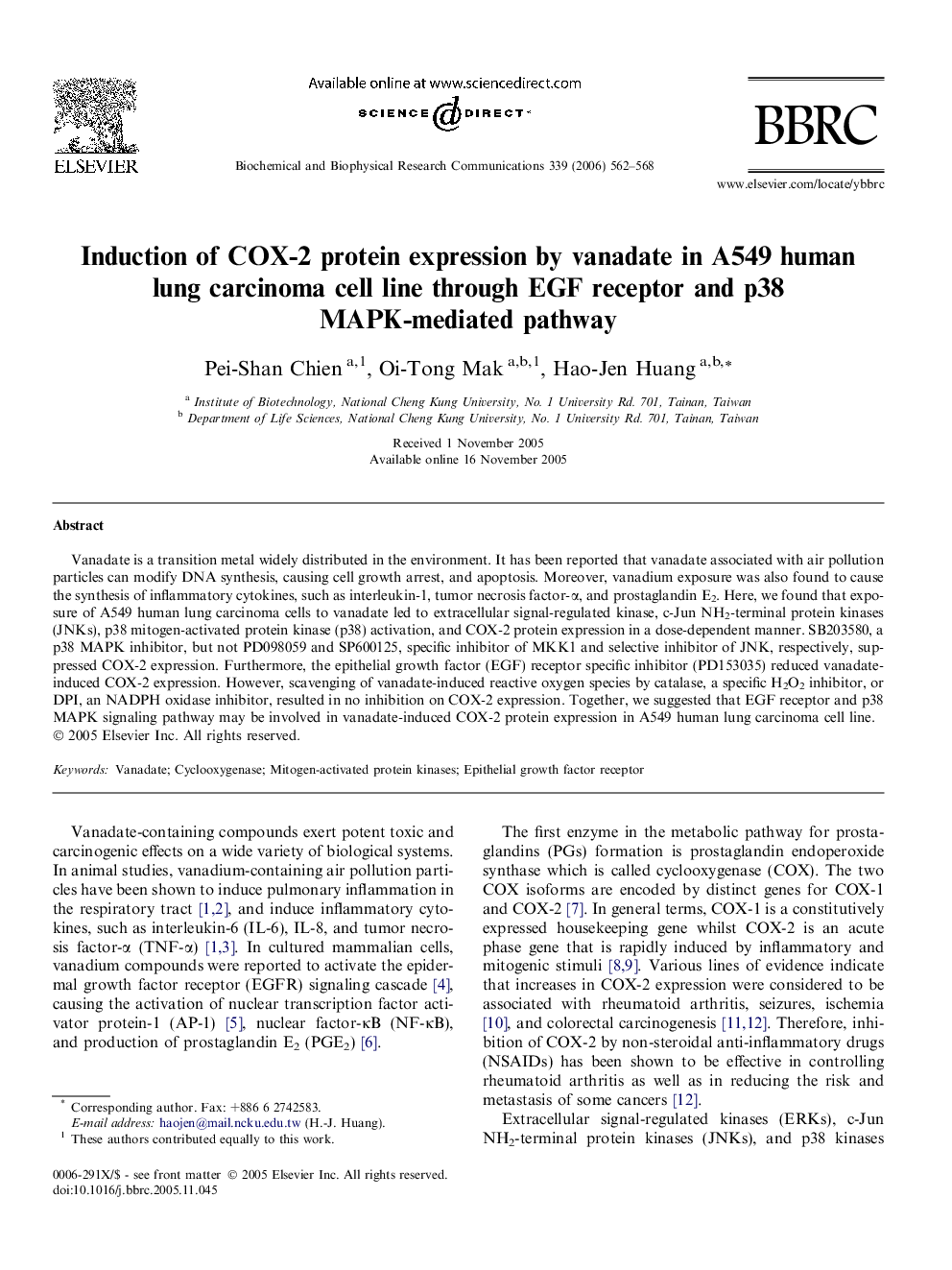| کد مقاله | کد نشریه | سال انتشار | مقاله انگلیسی | نسخه تمام متن |
|---|---|---|---|---|
| 1940786 | 1050788 | 2006 | 7 صفحه PDF | دانلود رایگان |

Vanadate is a transition metal widely distributed in the environment. It has been reported that vanadate associated with air pollution particles can modify DNA synthesis, causing cell growth arrest, and apoptosis. Moreover, vanadium exposure was also found to cause the synthesis of inflammatory cytokines, such as interleukin-1, tumor necrosis factor-α, and prostaglandin E2. Here, we found that exposure of A549 human lung carcinoma cells to vanadate led to extracellular signal-regulated kinase, c-Jun NH2-terminal protein kinases (JNKs), p38 mitogen-activated protein kinase (p38) activation, and COX-2 protein expression in a dose-dependent manner. SB203580, a p38 MAPK inhibitor, but not PD098059 and SP600125, specific inhibitor of MKK1 and selective inhibitor of JNK, respectively, suppressed COX-2 expression. Furthermore, the epithelial growth factor (EGF) receptor specific inhibitor (PD153035) reduced vanadate-induced COX-2 expression. However, scavenging of vanadate-induced reactive oxygen species by catalase, a specific H2O2 inhibitor, or DPI, an NADPH oxidase inhibitor, resulted in no inhibition on COX-2 expression. Together, we suggested that EGF receptor and p38 MAPK signaling pathway may be involved in vanadate-induced COX-2 protein expression in A549 human lung carcinoma cell line.
Journal: Biochemical and Biophysical Research Communications - Volume 339, Issue 2, 13 January 2006, Pages 562–568